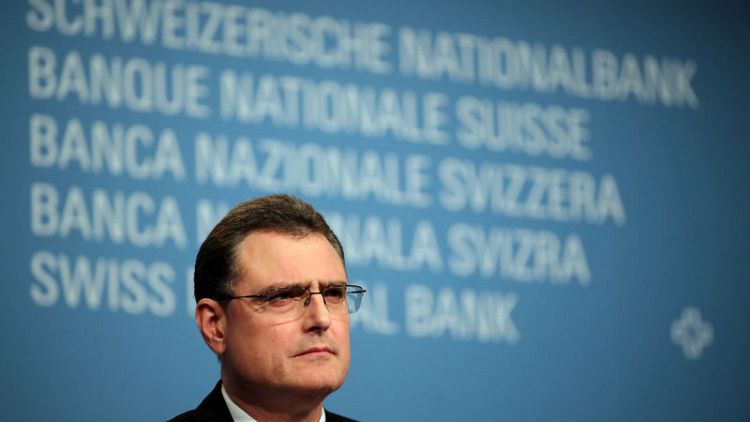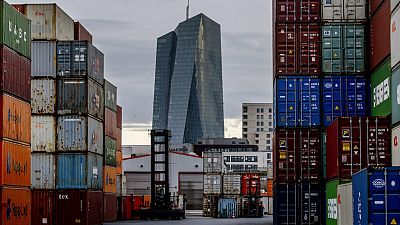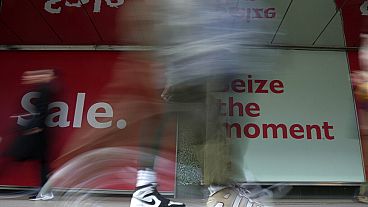By John Revill
ZURICH (Reuters) - Swiss National Bank Chairman Thomas Jordan said increasing global economic risks such as Brexit and U.S.-Chinese trade tensions meant the central bank will stick to its ultra-loose monetary policy for the foreseeable future.
Interest rates internationally are likely to remain very low, Jordan said on Thursday as the SNB retained its own expansive stance to guard against fallout from the "highly valued" Swiss franc.
"We have seen the downside risks have increased. We still have the conflict between America and China, we have the whole Brexit issue and the conflict between the European Commision and Italy," Jordan told broadcaster SRF.
"These are all disruptive factors that could suddenly throw a spanner in the works and cause a global economic slowdown or even a recession."
The SNB's dovish stance mirrored those of the European Central Bank, which has delayed its first post-crisis interest rate rise, and the U.S. Federal Reserve, which has halted a three-year drive to hike borrowing costs.
"If you look at all latest developments in America, the signals from Europe and from Japan -- they all point to monetary policy normalisation being shifted into the future," Jordan said.
The SNB remains committed to negative rates it has deployed to ward off demand for the safe-haven Swiss franc, Jordan said, adding that without them, the currency would again come under appreciation pressure.
Earlier the SNB said the "fragile" exchange rate situation and the "highly valued" franc supported keeping the stance the central bank has adopted for four years.
It kept its target range for the three-month London Interbank Offered Rate (LIBOR) at -1.25 to -0.25 percent, as unanimously expected by 32 economists polled by Reuters.
The bank also kept the negative interest rate of 0.75 percent it charges on sight deposits and said it remained ready to intervene in the currency markets if necessary to restrain the franc, which has gained roughly 3 percent in value against the euro in the last 12 months.
It bought a "modest" 2.3 billion francs worth of foreign currency in 2018 as it drastically scaled back intervention.
In its only change, the SNB cut its inflation forecasts for 2019 and 2020, a signal taken by economists to mean the bank will remain cautious.
"The SNB is more dovish than ever before and is not planning any monetary tightening over the forecast period," said Charlotte de Montpellier at ING Bank.
(Reporting by John Revill; Editing by Michael Shields and Catherine Evans)



